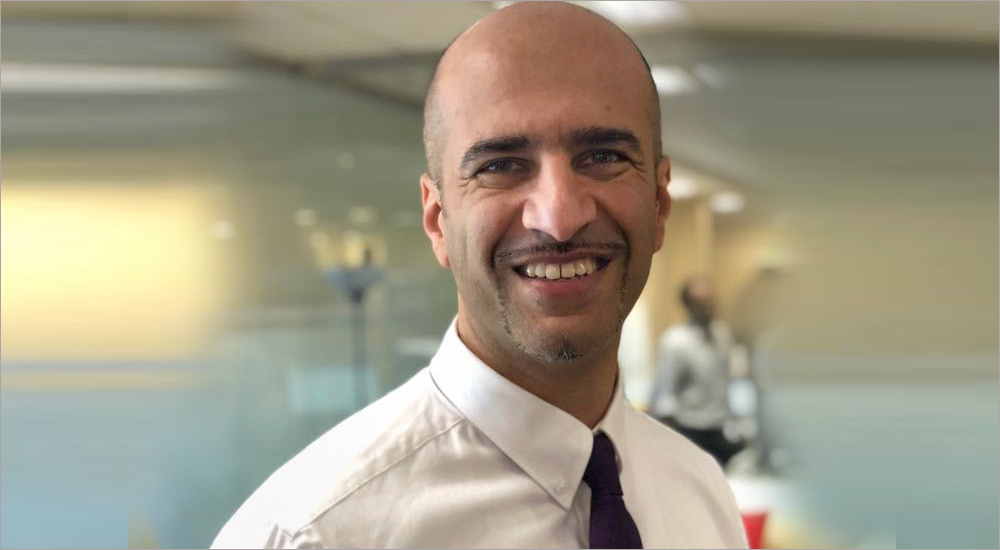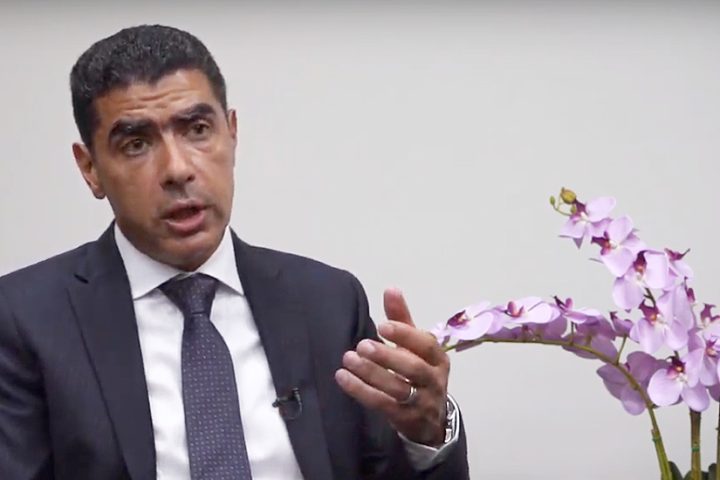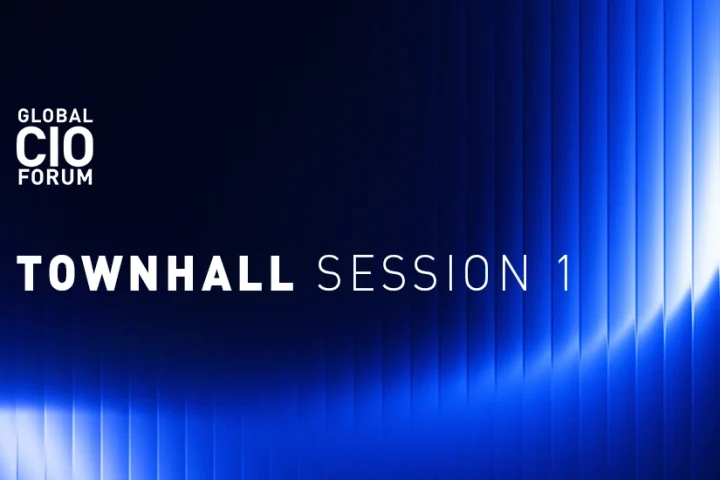The consumer lifestyle technology market is governed by a rapid obsolescence of products, with retail purchases being driven by the latest product releases at economical prices. Denaster General Trading is a key distributor of consumer lifestyle technology products, health care products, and personal care products. Its target retail market in the region includes the top Duty-Free outlets, leading online purchase outlets, and other leading retail stores. Says Deep Bhogal, Managing Director of Denaster General Trading, “Dubai Duty Free has been our biggest customer in the region now.”
Unlike other vanilla box distributors, Bhogal points out that Denaster actually plays the role of a value-added distributor. “We do not only just supply the retail market. We actually put our own staffing – so we have about a hundred and twenty staff outside actually selling the products.”
As a value-added distributor for prestigious super retail outlets, other than just delivering products to the retail shelves, Denaster also ensures the products get sold from the shelves. “We actually encourage customers and passengers to buy the products and tell them the advantages of buying our products.” Bhogal also leverages a group of merchandisers to make things look great along with the sales promoters.
For Denaster, the biggest challenge of its current business, is ensuring it has the right amount of stock to meet the demands of launching the latest consumer lifestyle technology products. If the stock that it supplies, is more than the demand at its retail outlets, then Denaster will be left with unsold stocks and inventory, at the end of the launch campaign. If the stock is less than the demand generated from the campaign, Denaster will be faced with lost sales opportunities, disappointed consumers and retailers.
“We need to stay ahead of the game – keeping up with technology, as technology keeps changing. That is probably one of our biggest challenges. You have got to manage the inventory to make sure that you do not get stuck with stock, because you know everybody wants the latest and nobody wants what is already gone in the past. So, it is a fine balancing act of trying to keep the right amount of stock and selling the right demand,” elaborates Bhogal.
Another pain point for Denaster has been generating reports for business from multiple IT systems. In the past Denaster was using multiple systems that did not talk to each other and was consolidating the data in MS Excel. “It has always been our challenge to get reports from the current systems. It takes time for our guys to work out the XLS, pulling from different platforms,” reflects Bhogal.
Denaster has begun its business and digital transformation journey by selecting Oracle NetSuite Cloud ERP. Specifically, for Denaster, NetSuite’s inventory and advanced inventory modules help to keep track of the total cost of the products, including import duties, cost valuations, stock positions, and stock reorder requirements.
Post the implementation of NetSuite, Denaster is looking at customising and building its report formats in a more integrated manner. Inside NetSuite, all the various modules talk to each other and hence it is not necessary to export the data to XLS. “This is where NetSuite actually comes in and we can now integrate all our different platforms into one,” says Bhogal.
By transforming its operations to NetSuite’s cloud-based ERP platform, Denaster has also been able to scale its operations into multiple countries from UK. Using a client server-based application would have been more cumbersome and time consuming. “It is very difficult to do this on a server base, so we need to move over to the cloud. We are just entering transformation.”
Another benefit has been the integration of physical and online processes, when Denaster launched its e-commerce platform based on the Magento platform. NetSuite provides integration with the Magento platform and the online ordering process is now seamlessly integrated with the rest of the organisation’s business processes. Reflects Bhogal, “I think now I can just press a button and I will get that information in real time.”
https://youtu.be/gmVXAqlSgR4?list=PLQO0SRAjb7G1KBTTCrok4V7r2_4HllUn1
Inside NetSuite
Oracle NetSuite ERP, was born in the cloud, and in that sense is differently positioned from its legacy competitors. NetSuite has been built to address the business requirements of small and medium enterprises. There has been significant regional demand for the solution with the recent announcement of VAT across various GCC countries.
The positioning of NetSuite as an application is further explained by Ahmed Sami, Regional Director of Oracle NetSuite. “NetSuite is an end to end enterprise solution, which includes financials as a back-office function. We see a great demand and pressing need for customers to acquire enterprise solutions that are affordable and yet can serve their requirements.” The VAT module is embedded within the financial application of NetSuite.
Other than horizontal business and office productivity solutions, NetSuite also has vertical and micro-vertical segment applications include in its suite. “This allows us to serve a bigger client base with their specific needs and then it grows with their business,” explains Sami.
The NetSuite cloud solution works in an integrated manner and end-customers keep adding on modules based on their requirements. As the business grows in terms of business and process requirements, end customers can activate and add-on additional functionality.
“Once a customer acquires our solution, they start with the implementation services, and then they continue through this journey until they stabilise their operations. Some of our clients would need only a simple inventory and some of our customers would need advanced inventory with material planning capabilities and so on,” says Sami.
The NetSuite portfolio also includes various tools for end users to customise their reporting formats as well as application programming interfaces to boost inter-connectivity with legacy or other applications.
NetSuite is effective in stabilising the core operations of any business and scales in-phase with rest of the business. Sami gives an example of UK based Deliveroo, which is an end customer. It started as a small operation in one country and has now scaled to multiple operations in over 16 countries. “It really depends on the core operation of our customers and how they are expanding. We have so many examples that started as very small companies and then started to expand their operations.”
Since NetSuite is a cloud-based subscription model, it is very important that the ERP application suite meet the expectations of its end users. Since the cloud application now has over 16,000 end user businesses using its portfolio, that is an indication of its ability to meet the process, delivery, performance expectations of its global and regional customers.

Snapshot
The distribution division is the core business of Denaster and has shown continuous growth. Denaster supplies its target retail market with electronics, gadgets, toys, personal care products, and travel accessories through duty-free, land-side partnerships, and online stores. As part of its distribution services, Denaster has dedicated sales teams to manage sales within retail stores. It also provides representation in the duty-free area, where it sets up shop-in-shop concepts with interactive displays.
Denaster is located in Dubai, UAE with two warehouses. Denaster is the main supplier of electronics to Bangalore Duty-Free and Mumbai Duty-Free in India. Denaster supplies to shops in major malls of Dubai and Abu Dhabi. Denaster also has presence through duty-free shops across Saudi Arabia, Oman, Bahrain, and Kuwait. The principal categories for its trading are electronics and health and fitness products. This covers gadgets, travel accessories, personal care, beauty products, movie collectibles, software, educational products.
The Denaster distribution network includes Virgin Megastore, IQ Stores, Harvey Nichols, Toy Store, Geekay, Emax, Toys R Us, Jet Airways, Gulf Air; Dubai Duty Free Shops in Dubai, Abu Dhabi, Muscat, Bahrain, Doha, Sharjah, Jordan, Kuwait, Mumbai, Bangalore; Etihad Loyalty Scheme; and Souq, Noon, Mumzworld, Wadi, Home Bazaar, Vanity Kart, Sharaf Online.

Key takeaways
Strategy
- The biggest challenge for Denaster is ensuring right amount of stock to meet demands of launching latest consumer technology products.
- Another pain point for Denaster has been generating reports for business from multiple IT systems.
Execution
- NetSuite works in an integrated manner and end-customers keep adding on modules based on their requirements.
- Inside NetSuite various modules talk to each other and it is not necessary to export data.
Cash
- By transforming operations to NetSuite’s cloud platform, Denaster has been able to scale operations into multiple countries.
- Another benefit has been integration of physical and online processes when Denaster launched its e-commerce platform based on Magento.
- Post implementation of NetSuite, Denaster is looking at building report formats in a more integrated manner.
People
- NetSuite has 16,000 end user businesses using its portfolio, an indication of its ability to meet process, delivery, performance expectations.






















